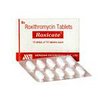 | Motilium Active Ingredient: Domperidone Motilium is used for stopping feelings of sickness (nausea) and being sick (vomiting) in adults and children. It is also used for relieving stomach discomfort, fullness or bloating and regurgitation of stomach contents (reflux or heartburn) in adults. Other names for this medication: Aciban-dsr, Adzole-dm, Agilam, Apentral, Apuldon, Arcelenan, Atidon, Avizol-d, Avomit, Benzilum, Bipéridys, Bompy, Canozol-d, Cilroton, Cinet, Cobaperidon, Costi, Cosy, Coszol-d, Dalic, Dany, Deflux, Degut, Depam, Diocid-d, Docivin, Dolium, Dombaz, Domedon, Domepraz, Domerdon, Dometa, Dometic, Domezol, Domilin, Domilux, Domin, Dominal, Dominat, Dompan, Domped, Dompel, Dompenyl, Domper, Domperdone, Domperidona, Domperidoni maleas, Domperidonmaleat, Domperidonum Show all |
Motilium 10mg
| Package | Per Pill | Price | Savings | Bonus | Order |
|---|---|---|---|---|---|
| 10mg × 90 pills | $0.38 | $34.2 | + Viagra | ||
| 10mg × 180 pills | $0.33 | $59.28 | $9.12 | + Levitra | |
| 10mg × 270 pills | $0.31 | $84.36 | $18.24 | + Cialis | |
| 10mg × 360 pills | $0.3 | $109.44 | $27.36 | + Viagra |
INDICATIONS
Motilium is indicated for:
- delayed gastric emptying of functional origin with gastro-oesophageal reflux and/or dyspepsia;
- control of nausea and vomiting of central or local origin;
- as an anti-emetic in patients receiving cytostatic and radiation therapy;
- facilitates radiological examination of the upper gastro-intestinal tract.
INSTRUCTIONS
Use Motilium as directed by your doctor.
- Take Motilium by mouth before meals.
- If you miss a dose of Motilium, take it as soon as possible. If it is almost time for your next dose, skip the missed dose and go back to your regular dosing schedule. Do not take 2 doses at once.
DOSAGE
Acute conditions (mainly nausea, vomiting, hiccup)
Adults: Two tablets (20 mg) 3 to 4 times per day, 15 to 30 minutes before meals and, if necessary, before retiring.
Children 5 to 12 years old: One tablet (10 mg) 3 to 4 times per day, 15 to 30 minutes before meals and, if necessary, before retiring.
Chronic conditions (mainly dyspepsia)
Adults: One tablet (10 mg) taken 3 times per day, 15 to 30 minutes before meals and, if necessary, before retiring. The dosage may be doubled.
Children 5 to 12 years: ½ tablet (5 mg) 3 to 4 times per day, 15 to 30 minutes before meals and if necessary, before retiring.This formulation is not suited for children under the age of 5 years, but for this group of patients the suspension is available. Motilium tablets are not suitable for children weighing less than 35kg.
Motilium should be used with caution in patients with renal impairment or in those at risk of fluid retention. In patients with severe renal insufficiency ( serum creatinine more than 6 mg/100 mL, ie. more than 0,6 mmol/L) the elimination half-life of domperidone was increased from 7,4 to 20,8 hours. The dosing frequency should be reduced to once or twice daily, depending on the severity of impairment, and the dose may need to be reduced. Patients on prolonged therapy should be reviewed regularly.
Ask your health care provider any questions you may have about how to use Motilium.
STORAGE
Store Motilium between 68 and 77 degrees F (20 and 25 degrees C). Protect from heat, light, and moisture. Do not store in the bathroom. Keep Motilium out of the reach of children and away from pets.
MORE INFO:Active Ingredient: Domperidone.
Motilium tablets contain lactose and may be unsuitable for people with lactose intolerance, glucose/galactose malabsorption or a genetic disorder leading to accumulation of galactose in the blood (galactosaemia).
Do NOT use Motilium if:
- you are allergic to any ingredient in Motilium
- you are pregnant, planning to become pregnant, or become pregnant while taking Motilium
- you are breast-feeding.
Contact your doctor or health care provider right away if any of these apply to you.
Some medical conditions may interact with Motilium. Tell your doctor or pharmacist if you have any medical conditions, especially if any of the following apply to you:
- if you are pregnant, planning to become pregnant, or are breast-feeding
- if you are taking any prescription or nonprescription medicine, herbal preparation, or dietary supplement
- if you have allergies to medicines, foods, or other substances.
Not to be used in
- Cancer of the pituitary gland resulting in over-production of the hormone prolactin (prolactinoma).
- Conditions in which stimulating movement through the stomach could be harmful, for example if there is bleeding, an abnormal hole (perforation) or a blockage in the stomach or intestines.
- Decreased liver function.
Some medicines may interact with Motilium. Tell your health care provider if you are taking any other medicines. The following medicines may oppose the stimulating effect of domperidone on the gut and so could make it less effective:
- antimuscarinic medicines, such as antispasmodics (eg atropine, hyoscine, propantheline), medicines for urinary incontinence (eg oxybutynin, flavoxate, tolterodine, propiverine, trospium), or antimuscarinics for Parkinson's (eg procyclidine, trihexyphenidyl, orphenadrine)
- strong opioid painkillers, eg morphine, codeine.
This may not be a complete list of all interactions that may occur. Ask your health care provider if Motilium may interact with other medicines that you take. Check with your health care provider before you start, stop, or change the dose of any medicine.
Important safety information:
Always inform your doctor if you are pregnant or planning a pregnancy, before using any medicine.
- The safety of this medicine for use during pregnancy has not been established. It should not be used in pregnant women unless the potential benefits to the mother outweigh any risks to the developing baby. It should only be used if the medicine is considered essential by your doctor.
- This medicine passes into breast milk in very small amounts that are not expected to be harmful to a nursing infant. However, the medicine is not recommended for use in women who are breastfeeding unless the potential benefit to the mother outweighs any risks to the nursing infant.
Medicines and their possible side effects can affect individual people in different ways. The following are some of the side effects that are known to be associated with this medicine. Just because a side effect is stated here does not mean that all people using this medicine will experience that or any side effect.
Rare (affect between 1 in 1000 and 1 in 10,000 people)
- Increased level of prolactin (milk producing hormone) in the blood (hyperprolactinaemia). Sometimes this can lead to symptoms such as abnormal enlargement of breasts in men (gynaecomastia), abnormal production of breast milk in men and women, or stopping of menstrual periods in women.
- Decreased sex drive in men.
Very rare (affect less than 1 in 10,000 people)
- Stomach cramps.
- Diarrhoea.
- Itchy nettle-type rash (urticaria).
- Abnormal or uncontrolled movements of the hands, legs, face, eyes, neck or tongue, for example tremor, twitching or stiffness (extrapyramidal effects). Consult a doctor straight away if you notice any symptoms like this.
- Allergic reaction.
This is not a complete list of all side effects that may occur. If you have questions about side effects, contact your health care provider.
Customers who bought this product also bought:
 Gasex$44.6 for pillGasex helps in digestion by exerting carminative, antispasmodic, antiflatulent and antacid actions. More info
Gasex$44.6 for pillGasex helps in digestion by exerting carminative, antispasmodic, antiflatulent and antacid actions. More info Roxithromycin$0.86 for pillRoxithromycin is used for treating several different infections, including some STDs, upper and lower respiratory tract infections and asthma, gum infections like gingivitis, and bacterial infections associated with stomach and intestinal ulcers. More info
Roxithromycin$0.86 for pillRoxithromycin is used for treating several different infections, including some STDs, upper and lower respiratory tract infections and asthma, gum infections like gingivitis, and bacterial infections associated with stomach and intestinal ulcers. More info Renagel$3.37 for pillRenagel is used for reducing the amount of phosphorus in the blood in patients with chronic kidney disease who are on dialysis. More info
Renagel$3.37 for pillRenagel is used for reducing the amount of phosphorus in the blood in patients with chronic kidney disease who are on dialysis. More info Protonix$0.41 for pillProtonix is indicated for the short-term treatment of erosive esophagitis associated with gastroesophageal reflux disease (GERD) More info
Protonix$0.41 for pillProtonix is indicated for the short-term treatment of erosive esophagitis associated with gastroesophageal reflux disease (GERD) More info Zantac$0.18 for pillZantac is used for treating certain conditions that cause your body to make too much stomach acid (eg, Zollinger-Ellison syndrome). More info
Zantac$0.18 for pillZantac is used for treating certain conditions that cause your body to make too much stomach acid (eg, Zollinger-Ellison syndrome). More info Pyridium$0.82 for pillPyridium is used for relieving pain, burning, urgency, frequent urination, and discomfort caused by irritation of the lower urinary tract. More info
Pyridium$0.82 for pillPyridium is used for relieving pain, burning, urgency, frequent urination, and discomfort caused by irritation of the lower urinary tract. More info